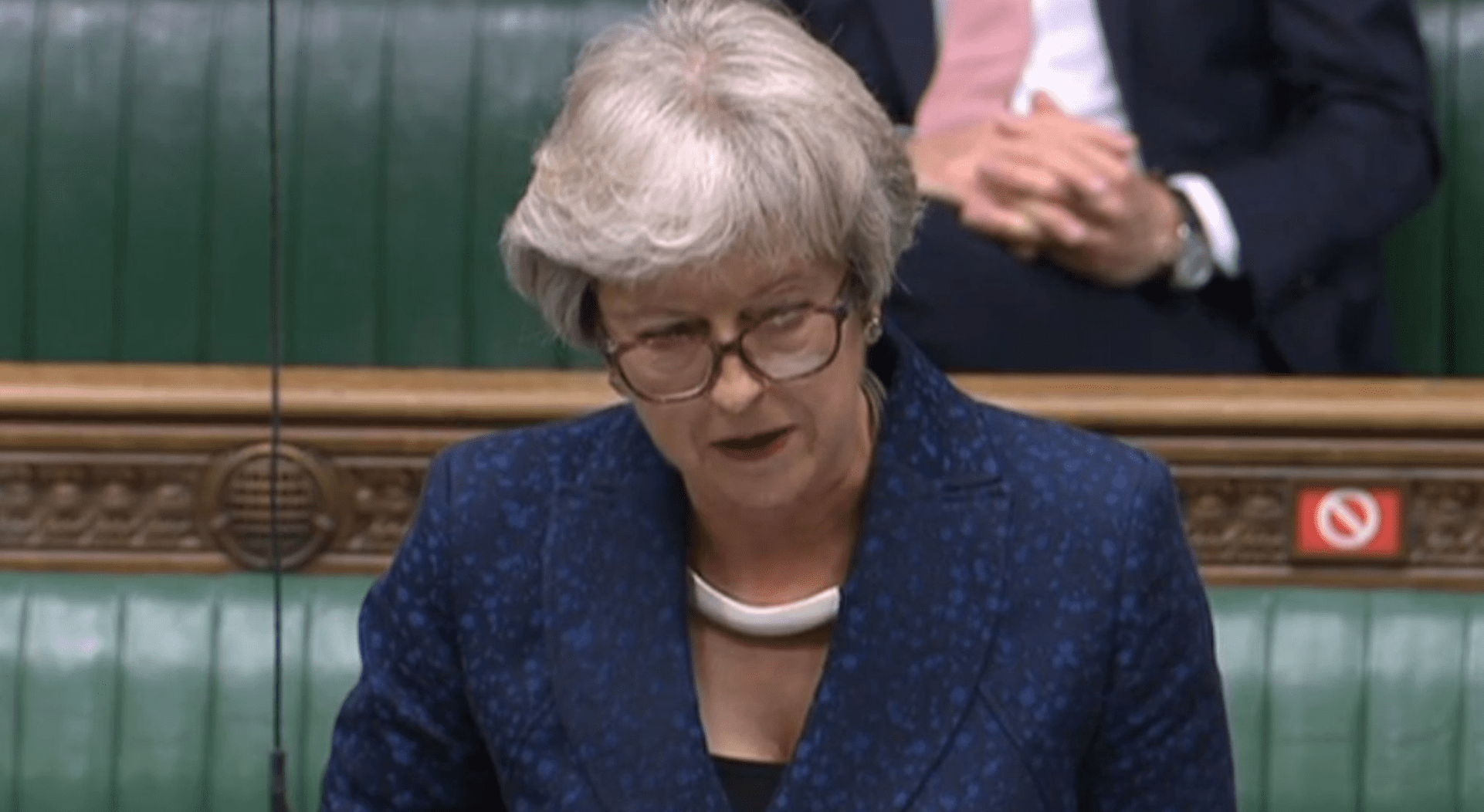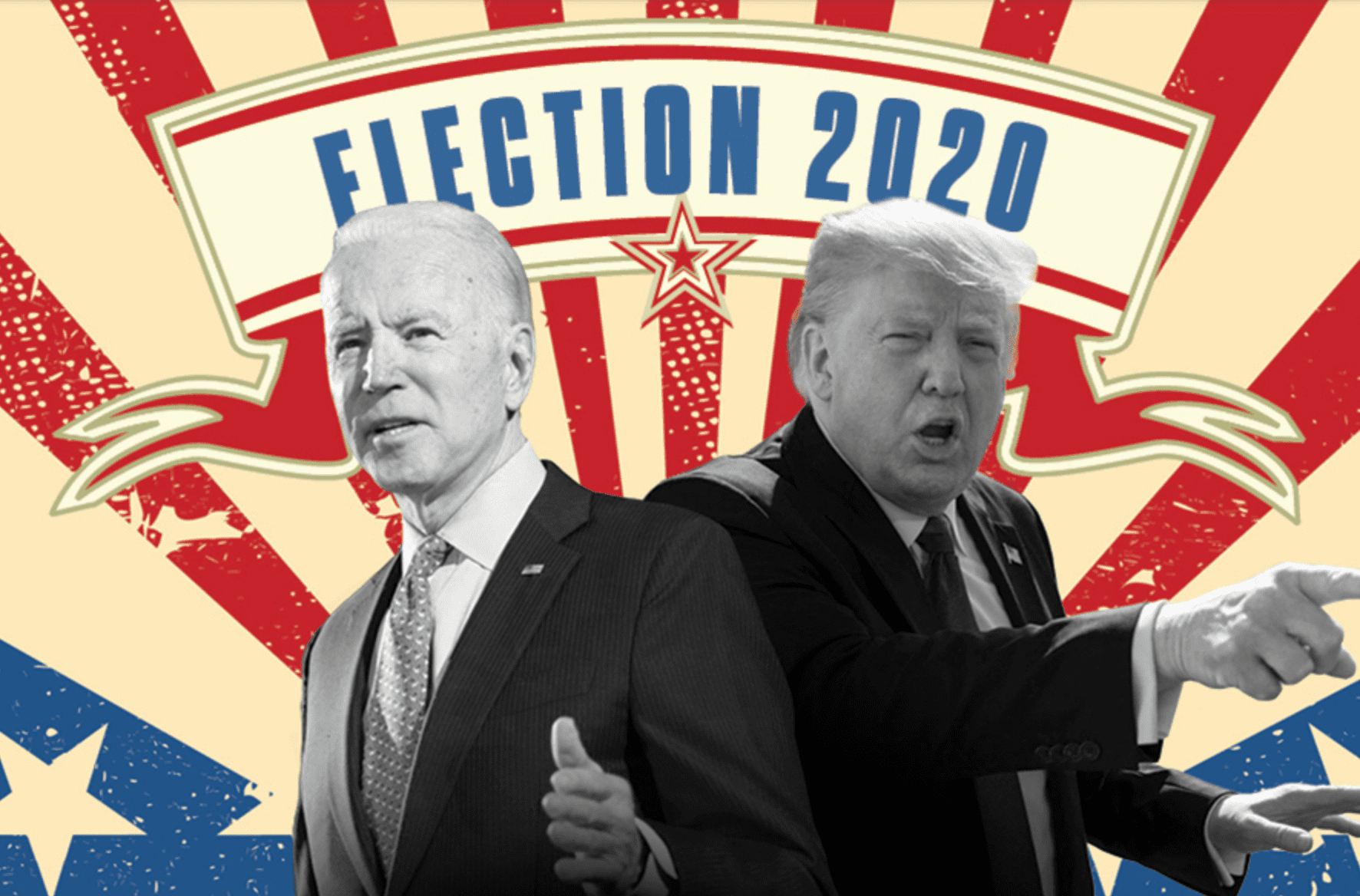The video of former UK prime minister Theresa May excoriating her successor, Boris Johnson, on the floor of the House of Commons in Westminster over the government's plans to violate international law as part of its Brexit plans, is one of the most encouraging things about politics that I've seen in ages. Not the fact that the government plans to violate the law to achieve its objectives that part is clearly distressing but rather the fact that May was able to offer such a clear denunciation is something that would be absolutely unheard of in Canada. Our MPs should be paying attention to this, and taking the appropriate lessons from it.
"Far from acting to reinforce the integrity of the United Kingdom, in pursuit of trying to appear to be tough to the European Union, I think the government is putting the integrity of the United Kingdom at risk," May told the Commons.
It's pretty damning stuff, as May outlined how Johnson's moves in looking to break the Good Friday Agreement has the very real possibility of compromising Northern Ireland's willingness to remain part of the country which should concern them greatly as they already opened Pandora's box in allowing Scotland a referendum on seceding from the UK, and they are agitating for another one so that they can remain part of the EU on their own. Losing both Scotland and Northern Ireland means that there will no longer be a United Kingdom it'll be England, and the principality of Wales.
So how is it that May can call out her own successor and the government that she once led? In part, it's because of how the structure of Westminster differs so much from Canada in that it allows room for dissenters that is virtually unknown here. Because Westminster has 650 seats, as compared to our 338, there are far fewer opportunities for backbench MPs on the government's side to become cabinet ministers than here. Not only are the chances much greater mathematically in Canada, our conventions around federally balanced Cabinets and diversity representation means that the chances for some MPs getting into Cabinet are very, very good, which tends to mean being a team player and keeping one's mouth shut. Even those who are disadvantaged geographically or demographically have the hopes of becoming a parliamentary secretary or committee chair, and the salary bumps associated with them, and for everyone else, there is an awareness that they are one minister's screw-up away from a promotion. There are a lot of incentives in there.
In Westminster, the diminished chance of a ministerial appointment, coupled with one's seat being reasonably safe, gives room for those backbenchers to be outspoken. It doesn't happen as often as we may think, but it does happen far more frequently than it does here. As well, the culture of parliamentarianism there means that former leaders and ministers are more likely to hang around than they are to simply disappear into the night. In the UK, that has meant that those former ministers become subject-matter experts that the Commons can draw upon in debate, which is invaluable experience. There is not enough of that in Canada, both with our high turnover rate, and the acknowledgement that for former leaders and ministers, it's simply more lucrative for them to get out of politics and go into the private sector, where they can start adding a lot more zeroes to their paycheques than would ever happen in politics.
There is an added dynamic in the UK, which has only recently started changing, which is around leadership selection. Until this past decade, they operated under the proper Westminster tradition whereby the caucus would choose a leader from amongst their own ranks. This hasn't been the case in Canada since 1919, and the UK has since adopted Canadian-esque rules whereby the party membership gets to vote on the leader, and it's been fairly disastrous since. While May managed to avoid following these new rules because her rival in the party backed out when problematic comments surfaced in the media (the Conservative Party's rules are that the caucus narrows the field to two, which the membership then votes on), Johnson was voted in by the membership at large. On the opposite benches, in Labour, Jeremy Corbyn's disastrous leadership was enabled by an activist base that hijacked the party to get him elected and keep him there until he finally resigned the post after losing a second election that the party should have been able to win.
Why does this matter? Because as we've seen in Canada, directly electing leaders by the membership has had the effect of hollowing out parties and turning them into personality cults, and May's comments offer a rebuke to that very effect.
"I cannot emphasise enough how concerned I am that a Conservative government is willing to go back on its word, to break an international agreement signed in good faith, and to break international law," May stated.
In other words, she is cautioning that the party and its principles are being abandoned by Johnson's cult and its enablers, which should be concerning for anyone who is part of a political party that is supposed to be based on shared values and beliefs, and not as a vehicle for a single person to try and achieve power.
So, what are the lessons we should be drawing in Canada? For one, we need more seats in the Commons, which will have the benefit of better balancing the population disparity between urban and rural ridings, and hopefully keep rural ridings from getting any bigger. We also need better rates of incumbency, which means incentives for people to stick around and provide expertise and institutional memory. And most crucially, we need to do away with the original sin in our politics and return to caucus selection of leaders. All of this is achievable with sufficient political will, and the desire to actually make our parliament a grown-up institution and not a puppet theatre controlled by leaders' offices. Let's hope that May can be an example that we can draw inspiration from.
Photo Credit: Sky News








